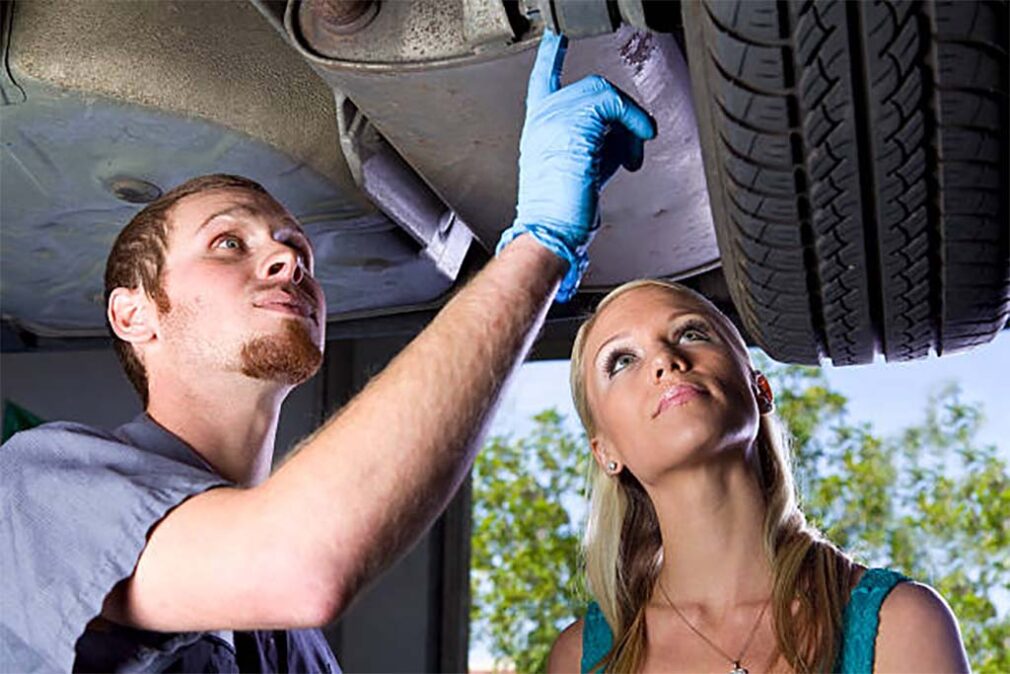Stepping into the world of driving and car ownership comes with exhilaration, but also responsibilities. One of these responsibilities is vehicle maintenance. Although it may seem daunting at first, understanding and executing basic car maintenance is not a complex affair. In fact, it’s as vital as learning how to drive. Regular car maintenance is crucial for numerous reasons: it ensures the longevity of your vehicle, mitigates the risk of costly repairs, and safeguards against unexpected breakdowns ensuring your drive remains safe and enjoyable. Therefore, for the beginners out there, we’ve compiled a comprehensive guide with ten basic, yet indispensable maintenance tips to help you become a responsible car owner.

Tip 1: Regularly Check Your Tires
Tires, your car’s only point of contact with the road, play an integral role in maintaining optimal vehicle performance and driving safety. Inspecting tire pressure regularly is imperative to prevent premature wear and tear, increase the lifespan of your tires, and improve fuel efficiency. Ideally, you should inspect your tires once a month and before embarking on long trips. Look for signs of uneven wear patterns, as they can potentially signify issues with tire pressure, alignment, or even suspension. Lastly, always remember to inspect your spare tire—it’s easy to forget, but equally important.
Tip 2: Keep the Car Clean
Maintaining the cleanliness of your car might seem like a superficial aesthetic concern, but its benefits extend beyond just looks. Regular cleaning safeguards the car’s paint and bodywork from potential damage caused by debris, corrosive road salts, and damaging UV rays. Interior cleaning is also essential as it prevents the buildup of dirt, dust, and moisture that could compromise the upholstery and internal components. Consistent cleaning can substantially extend the life and appeal of your car.
Tip 3: Regularly Change the Oil
Consider engine oil the lifeblood of your car. It lubricates, cools, and cleans the engine, ensuring smooth and efficient operation. Regular oil changes help prevent detrimental buildup and degradation of engine components. The frequency of oil changes can depend on an array of factors, including the type of oil used, the age and make of your car, and your driving habits. A general guideline, however, is to consider an oil change every 3,000 to 5,000 miles.
Tip 4: Maintain the Car’s Cooling System
The cooling system in your car plays a paramount role in safeguarding your engine from overheating, thereby preventing serious damage. Regularly check the coolant level in your car, especially during seasonal changes. Implementing a coolant flush as part of your car’s routine maintenance schedule is also advisable to maintain the efficiency of the cooling system. Experts generally recommend a coolant flush every 30,000 miles or every two years, whichever comes first.
Tip 5: Regular Battery Check
The battery is the unsung hero of your car. It is instrumental for starting the engine and powering other electrical components of your car. Regularly inspect your battery for signs of corrosion or leakage and ensure the connections are clean and secure. Most car batteries have a life span of three to five years, but this can depend on driving conditions and habits. Keep track of your battery’s age and performance to know when it’s time for a replacement.
Tip 6: Ensure Efficient Braking
Your car’s braking system is one of the most significant safety features. Regularly check your car’s brake fluid level and stay alert for changes in how your car brakes. If your car pulls to one side during braking, or you hear unusual noises, it’s an immediate indication that you need to schedule a checkup. Regular brake inspections should not be overlooked as they ensure your car remains safe to drive.
Tip 7: Regularly Replace Windshield Wipers
Visibility is critical when driving. Windshield wipers play an essential role in maintaining clear vision, especially in adverse weather conditions. Over time, wiper blades can become worn and less effective. Regularly inspect them for signs of wear and replace them as needed. Typically, it’s advisable to replace windshield wipers every six months to a year, or as soon as you notice a decline in performance, such as streaking on the windshield.
Tip 8: Keep an Eye on the Car’s Belts
Your car’s belts are vital components that drive the functions of various accessories such as the alternator, water pump, power steering pump, and air conditioning compressor. Regularly check these belts for signs of fraying, cracking, or glazing, as these can indicate wear and imminent failure. Belts generally need replacement every 60,000 to 100,000 miles, but always refer to your vehicle’s owner’s manual for specific guidelines.
Tip 9: Regularly Check Lights
All the lights on your vehicle serve specific, often safety-related functions. Therefore, regularly check your headlights, brake lights, turn signals, and interior lights to ensure they’re functioning correctly. Replace any burnt-out bulbs promptly to maintain visibility and communication with other drivers on the road. Regular light checks will help you avoid any potential collisions or traffic violations.
Tip 10: Keep Up with Scheduled Service
Last but not least, always adhere to your car’s scheduled service. This includes professional inspections and maintenance that go beyond the scope of DIY care. Regular servicing can catch potential issues early before they turn into costly repairs. The service schedule for your car is typically found in the owner’s manual. Sticking to this schedule not only maintains your car’s performance but also extends its lifespan.
Conclusion: Making Car Maintenance a Habit
Car maintenance is an ongoing responsibility that comes with car ownership. Adhering to these ten basic maintenance tips will help ensure your vehicle runs efficiently and safely. Not only will regular maintenance prolong your car’s lifespan, but it will also enhance your overall driving experience. Remember, a well-maintained car is not just an asset; it’s a reflection of its owner. Starting on this journey might seem challenging at first, but with time, maintaining your car will become second nature. Always stay vigilant, learn continuously, and drive safe.

